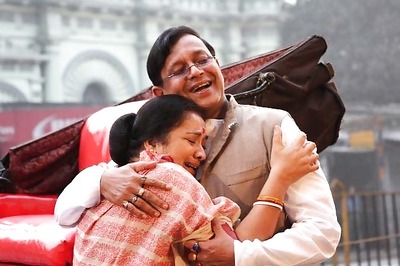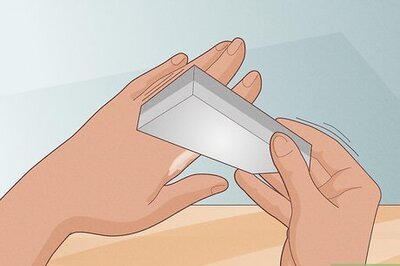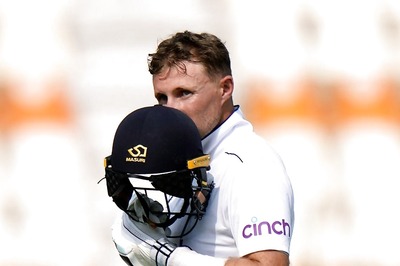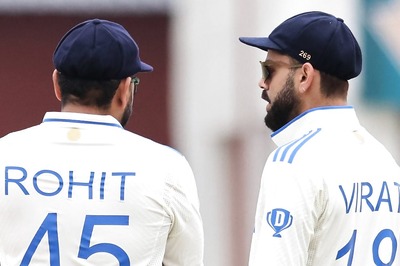
views
The ‘Howdy Modi’ mega event in Houston is the culmination of Prime Minister Narendra Modi’s efforts to cultivate the Indian diaspora. Modi has been wooing the diaspora all over the world and more so in the US. As the Indian-Americans have become more powerful, it is only natural for the prime minister to make use of them and market himself and India.
In fact, it was this secret weapon that Modi has been using successfully to create a positive impact in whichever country he has visited in the past five years. The diaspora, on the other hand, is delighted with Modi for giving them facilities such as relaxation in visa norms, ease of doing business and merging the OCI and PIO cards. Hence, they are looking forward to Modi standing by the side of US President Donald Trump when the two share the dais.
Modi had sounded Trump during his meeting with the latter on the sidelines of the G7 summit in Paris last month. The President, obviously weighing the pros and the cons, decided to participate in the mega event, which may provide political benefits to him personally in next year’s race for the US President’s post besides keeping the Indian Diaspora in good humour.
Both Modi and Trump are in a win- win situation as ‘Howdy Modi’ will benefit both politically. For Prime Minister Modi, it is the biggest moment to share the dais with the world’s most powerful leader. It will boost his domestic and international prestige and give him some relief on the Kashmir issue, which will be raised by Pakistan Prime Minister Imran Khan at the UN General Assembly meeting later this month.
Trump’s participation in the mega event will also send a signal to the US State department about the President’s friendly gesture, which will unite the Indian diaspora.
As for Trump, he is eyeing winning the presidential race next year and is looking for support. The affluent Indian community is his target and he hopes to woo them by his participation at the 'Howdy Modi' event. With his declining popularity rating in the opinion polls, making any dent is good though trends show the diaspora is supporting the Democrats. All the five Congressmen in the present US Congress are Democrats.
Second, he hopes the affluent Indian-Americans will support him with liberal donations. The diaspora, which garnered wealth through the computer and Internet revolution, is the third-largest Asian American group after the Chinese and Philippines and has emerged as a significant vote bank.
But the question is, why is Modi wooing the diaspora? While his critics say he has been building up ‘Brand Modi’ abroad, the Prime Minister is clear that with the support of the diaspora, he can market himself much better. Strengthening these relations is a big component of his foreign policy and he has asked the Indian embassies abroad to address the concerns of the people. Modi obviously feels that the power of the diaspora should be harnessed for the growth of India and his own image.
It is not as if the BJP did not have support from Indians abroad but Modi, in these five years, has taken it forward. Indian-Americans occupy positions of power in academia, business, the US government and politics. They have acquired clout and become a credible force. There are about three million Indian immigrants and India is the third-largest source for the US. The median income for Indian diaspora households was $89,000 per year versus $50,000 for US households overall, according to a recent PEW research survey.
Traditionally, the BJP has been more involved in mobilising the diaspora than the Congress. For decades now, the Sangh Parivar — including the BJP and its sister organisations — have assiduously cultivated Indian-origin people in the US and elsewhere. Former prime minister Atal Bihari Vajpayee even appointed an NRI as ‘ambassador at large’ but the US government rejected it on the grounds that there could not be two envoys.
Converting the diaspora into an effective tool of India’s foreign policy has been Modi’s key achievement. The prime minister believes that Indian-Americans are important to India’s growth story, which is reflected in the steps taken by him for the diaspora such as relaxing visa norms. In 2004, a separate ministry of overseas affairs was launched, which is now part of the External Affairs ministry.
The BJP has realised much earlier the diaspora’s ability to influence bilateral relations, with the ‘Overseas Friends of BJP’ being a powerful lobby in the US. In contrast, the Congress has been slower to respond to the interests of the Indian-Americans. After liberalisation, New Delhi has realised their importance in trade, investments, and diplomatic relations. Their size and economic power has grown enormously. The diaspora’s ability as a soft power was realised when they helped India after the Pokhran blast when sanctions were imposed and later for concluding the Indo–US nuclear deal. The group played a crucial role for de-hyphening India and Pakistan too.
Modi’s diaspora diplomacy has resulted in glorifying India’s image abroad. For Modi, the diaspora is an asset rather than a liability and the ‘Howdy Modi’ event will take it forward.


















Comments
0 comment